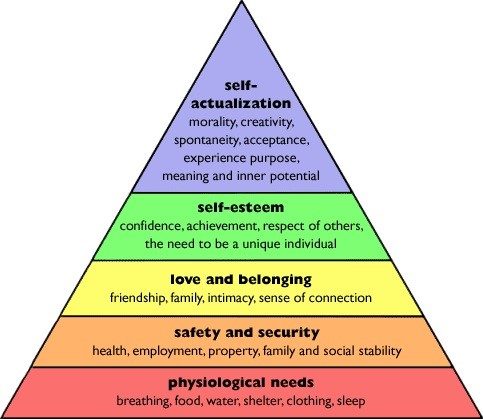We’ve all been there: two hours into staring at the textbook and you’re wondering why you should even bother. Who really cares about this exam? It’s only one exam, what difference will it make to your life in ten, twenty or thirty years’ time? These questions are ones myself and many others have asked themselves, and point to the perpetual problem of revision: motivation. It is a problem parents have struggled with for decades, and it is becoming an increasingly worrisome matter for them as they see university entrance standards and the job market getting ever tougher.
To any students struggling with motivation I will first say: you are not alone. The world is full of people struggling to motivate themselves with one project or another, but this hasn’t brought the world to a standstill. In this blog post I will try to point out some of the underlying problems identified by psychologists, and I’ll give a few pointers as to how you can overcome these problems. A desire to surpass your motivation slump is the first step to doing so!
Address your own self-belief and confidence
If confident of your ability to succeed, you will be motivated to try to succeed, however if you sit thinking you’re set for failure, or unappreciated, then you are already admitting defeat. This is central to the Attribution Theory of Motivation – confidence in yourself is key to so-called ‘internal factors’.
If you lack confidence in a subject, do not be put off. You can take some small, simple steps to rebuild your confidence:
- Set yourself achievable goals (for parents reading this, you too should set goals for your children). Achieving these goals will slowly rebuild your confidence; each goal achieved will be another brick in the wall, building your mastery of the subject.
- Engage in other activities you enjoy. Success in something you enjoy will make you more positive and confident of your general abilities, and this confidence will pervade your studies in general.
- A positive environment at home and school can give huge boost when revising. Parents should be as encouraging as possible (and children should work to merit such praise!). This optimism and positivity will rub-off on the child, and will help to boost self-belief. As American writer Dale Carnegie said, ‘if you do the little jobs well, the big ones will tend to take care of themselves’. This very much applies to revision and being in the right mindset.
This notion of looking after the little things links into another motivational theory called the Hierarchy of Needs.


As the pyramid above shows, if you look after the little things, then you can focus on the big things (self-actualization). By removing worries about family, health etc. you remove distraction and make it easier to become motivated to achieve your goals.
Use your stress as a positive tool
Connected to this idea is stress management. Stress can be a key motivating factor; a little stress can create just enough fear to motivate you to achieve your goals. However, if this stress becomes too much it becomes damaging: you go from focusing on the exam to fixating on the stress itself. During exam season, it is key to keep your stress levels fairly low, and this is helped by removing worries which arise from family and home life.
There are many ways to deal with stress and it very much depends on the individual. Personally, I enjoy going for runs to clear my head and put things into perspective. Ensure you sleep well and don’t over-caffeinate yourself. Caffeine remains in your system for 24 hours, meaning a coffee at 2 in the afternoon will disrupt your whole night. It may be better to steer clear of all stimulants during exam season to ensure you sleep better. Find what works for you and follow it.


Finally, I’ll quickly list a few things to avoid when revising, as they’re sure to demotivate you:
- Don’t make an impossibly ambitious exam timetable: be realistic.
- Don’t surround yourself with those who work crazy hours, it will simply dishearten you. Surround yourself with people of similar ability, and those who will push you a bit. Above all, be positive when working with others!
- Avoid using the internet if possible, hours can disappear by fruitless surfing of funny videos.
- Don’t be distracted by younger siblings who don’t have exams, they’ll be in your position in a few years.
- Avoid having your phone in the same room when revising – as with the internet, fruitless hours can vanish through your phone.


Overall, the important message is that you should be confident in yourself and your ability. You are not alone in struggling to remain motivated. Set yourself goals (big and small), get your parents involved, and be realistic as well as aspirational. Don’t allow your stress to get out of control, take measures to cope with it. If you do all this, you will find it a lot easier to be motivated, and to succeed. Maybe you’ll even motivate others in the process!
Written by Hugo, who tutors Philosophy and German at Edinburgh




